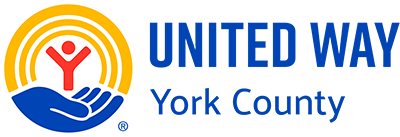Addressing Barriers to Affordable Healthcare for Hard-Working Americans

Affordable access to healthcare in the US remains an elusive dream for many, especially low-income households. Working Americans in lower socioeconomic brackets often hold multiple jobs, yet still struggle to afford basic necessities, including healthcare. This is detrimental not only to these individuals and families but to society as a whole.
Here’s why access to healthcare is fraught with so many obstacles for those who are Asset Limited, Income Constrained, Employed (ALICE), how this ultimately harms everyone, and what we can do about it — including how you can get help if you count yourself among these Americans.
What Keeps Healthcare Out of Reach for ALICE
Although the 2014 Affordable Care Act significantly expanded access to Medicaid and at least minimal forms of healthcare coverage, thereby saving many lives, it is not an adequate or user-friendly solution for everyone.
First, the system still relies primarily on employers and private insurance rather than providing a new or consistent healthcare coverage structure. Its new state-run insurance exchanges (collectively known as the Health Insurance Marketplace ®), are frustratingly complex; the policies available are often subject to change; and low-income households are still required to prove they qualify for government assistance. In addition, many Americans may be forced to navigate back and forth between Medicaid and the exchanges to receive coverage.
This means that many of the barriers to healthcare that existed prior to the establishment of the ACA still pose major problems for ALICE groups.
For Uninsured Americans
- Lack of employer-sponsored insurance. Employers who offer low-paying, hourly, or part-time work often also fail to provide benefits packages that include adequate health insurance coverage (or any at all). Given that employer-sponsored health insurance remains the single most common way Americans obtain healthcare, these employers do a double disservice to ALICE workers, especially in light of the fact that pay is not always commensurate with the skill or quality of the work performed.
- High out-of-pocket insurance costs. For many ALICE individuals without employer-sponsored insurance, the high out-of-pocket cost of health insurance premiums is a significant barrier. Even on the Health Insurance Marketplace ®, plans with adequate to robust levels of coverage can have prohibitively expensive premiums.
Unaffordable out-of-pocket medical care and prescription costs. Without adequate health coverage, many ALICE Americans are forced to pay for medical care out of their own already constrained cash flow. This includes not just doctor’s appointments, tests, and procedures, but prescription medications as well. Some of these are life-altering or life-saving, meaning that people who are forced to forgo their prescriptions may place themselves at risk of hospitalization or death.
For Insured Americans
- High deductibles and copayments. Even with insurance, high deductibles and copayments can make healthcare unaffordable for ALICE households. This often leads to delayed or declined care.
- Narrow networks. Insurance plans with limited networks can restrict access to care, making it difficult for even insured ALICE individuals to find in-network providers without facing significant out-of-pocket costs. People with these plans may not have other viable options, either because they rely on employer-selected plans or cannot afford more robust ones.
Inaccessible health services. Geographic and transportation barriers (not having reliable access to a privately owned vehicle or effective public transit systems) further complicate the ability to obtain medical care, particularly in rural areas where healthcare services are sparse. In addition, because many ALICE individuals can’t leave work or home during the 9-5 window in which most medical centers are open, they may be prevented from receiving care.
.png)
The Impacts of Unaffordable Healthcare on Everyone
One ALICE Individuals and Households
- Worse health outcomes and life endangerment. The inability to afford necessary preventive and interventive care can lead to worsening health outcomes that otherwise could have been avoided. This includes untreated chronic conditions that require hospitalization and may result in death despite hospital care.
- Financial strain. Healthcare expenses, particularly emergency-related ones that result in hospitalization, can lead to significant financial strain — including debt and bankruptcy — for ALICE households. This financial pressure can force families to choose between healthcare and other essentials, like food and housing.
- Poor mental health and substance abuse. The psychological stress that can result from worsened health outcomes and financial strain often leads to poor mental health and poor decision-making. This can include resorting to substance abuse, which only endangers human health even further.
On Society
- Economic impact. The broader economy-wide cost of adverse health outcomes stemming from barriers to medical care includes higher healthcare costs for all when ALICE individuals use emergency services as a last resort.
- Social inequality. The healthcare affordability crisis exacerbates existing social inequalities, creating wider disparities related to overall productivity and the ability to thrive between low-income families and those with higher incomes.
How to Make Healthcare More Accessible
There are many ways the government, political leaders, and even the average American can work to make healthcare access more equitable and accessible, such as:
- Making healthcare policy changes. Implementing policies that expand access to affordable health insurance, increase the number of healthcare providers in underserved areas, and regulate healthcare prices could provide long-term solutions.
- Strengthening community health initiatives. Local government health initiatives can offer immediate relief by providing affordable or free healthcare services to low-income families.
- Expanding ways to receive care. Studies indicate that ALICE Americans want more providers to improve the quality and accessibility of their services. This includes offering telehealth options, nonstandard office hours and patient-centered as well as culturally responsive care.
- Supporting nonprofits that increase access to care. There are countless national, state, and community-based organizations that work to remove or reduce healthcare barriers for ALICE populations. You can help to provide immediate relief by supporting them.
How You Can Access Affordable Healthcare Now
If you are an ALICE American, you don’t have to wait for government policies to change. You can get the help you need to find affordable healthcare coverage now by:
- Utilizing community and public health resources. Local clinics and health centers often provide services on a sliding scale based on income. In addition, taking advantage of free preventive services in your area can help you avoid or address some health issues early, potentially saving on future healthcare costs (and adverse outcomes).
- Seek out patient advocacy groups. Organizations like the National Health Council provide guidance and support for navigating healthcare challenges.
Look for community-based social services. Community-based human services like PA 211 can connect you with a wide variety of assistance programs for all of your major life needs.
Get Affordable Healthcare Now with United Way of York County
United Way of York County in Pennsylvania assists working households in our community to achieve financial stability by collaboratively and equitably reducing barriers to prosperity. We offer access to free health and human services like affordable healthcare, prescription medications, child care, assistance with tax preparation, and more to fight for the health, education, and economic mobility of all members of our community.
We offer many of these resources through PA211, a free confidential health and human services information and referral hotline. Learn about how to use PA 211 to access resources like healthcare, and contact us to get the services you need for a financially successful future.
